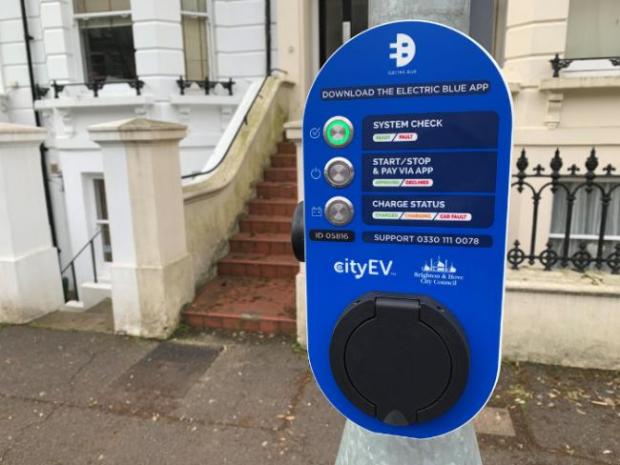The number of electric vehicles in Brighton and Hove has risen sharply over the past year, figures show.
Data from the Department of Transportation shows that 939 low-emission vehicles (ULEV) were registered in the city at the end of last year – up from 621 at the end of 2019.
The numbers include battery electric, plug-in hybrid and fuel cell electric vehicles.
Of the 318 new ULEVs, 237 were registered with private owners, while 81 were registered with business addresses.
Overall, ULEVs only made up around 0.8 percent of all vehicles registered in Brighton and Hove at the end of 2020 – just below the UK average of 1.1 percent.
Around 431,600 ULEVs were licensed across the UK at the end of 2020 – an increase of 162,300 from the previous year.
The majority of the spikes – around 101,800 – were registered by the company.
The government is committed to stop selling new gasoline and diesel cars and vans by 2030 and to ensure that all new sales are “zero-emission” by 2035.
In the DfT numbers, a ULEV is defined as a vehicle with reported exhaust pipe CO2 emissions of less than 75 grams per kilometer, meaning that not all of them would meet this new requirement.
In Brighton and Hove, 529 of the ULEVs approved at the end of the year were battery electric vehicles – defined as zero emissions.
Another 358 were plug-in hybrid electric vehicles that combine an electric motor with a gasoline or diesel engine.
Brighton and Hove City Council installed more than 200 lamppost chargers in the city last summer.

In March, the government cut subsidies for electric car buyers from £ 3,000 to £ 2,500 and lowered the eligible car cap from £ 50,000 to £ 35,000.
However, the Labor Party says more needs to be done to make green cars more affordable for families across the UK.
Kerry McCarthy, Labour’s shadow secretary for green transportation, said: “With the climate emergency worsening, increases in electric vehicle sales are always welcome.
“Rather than encouraging this trend, the government seems to be doing everything possible to stifle progress by lowering subsidies for electric vehicles and not putting in place a roadmap for a smooth transition from gasoline and diesel vehicles by 2030.
“We need a clear, long-term government vision to support the UK auto industry, as well as measures to support the sale of electric vehicles to make them affordable for families and to put in place adequate charging infrastructure.”
Transport Secretary Rachel Maclean said last year, for the first time, more alternative fuel cars were registered across the UK, although that includes some types of hybrid vehicles that are not ULEV rated.
She said: “This is proof that more and more people are moving away from diesel cars as we are decommissioning and cleaning up the air in our cities in a more environmentally friendly way.
“With £ 2.8 billion in government support to encourage their uptake, there has never been a better time to switch to an electric vehicle.”

